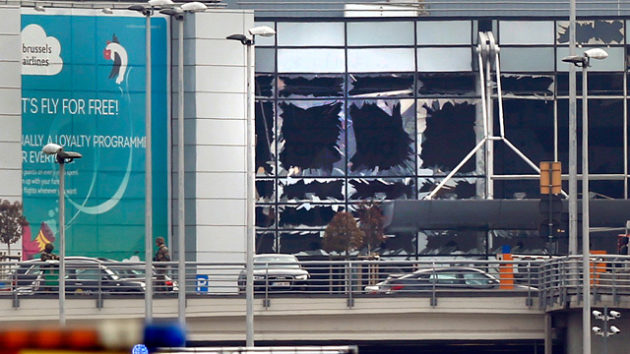Brussels: What We Can Learn From Today’s Slaughter
Today, terrorists attacked Brussels both the airport and a metro station in the center of the city. Here’s what we can learn from the attacks.
Europe is reeling from the latest terrorist attacks, this time against Brussels, now confirmed to be a terrorist attacks. Three blasts have been reported so far, two in the Zaventem airport and one at the Maelbeek metro station some 500 meters from the European Parliament.
Here are three takeaways from this most recent tragic attack.
This Fight Impacts Everyone
The attack in Brussels follows Saturday’s attack on Istanbul by an Islamic State suicide bomber that killed four. Countries attacked so far this year by Islamist terrorist either working for groups or in lone wolf attacks (and remember it’s only March) include:
- Afghanistan
- Belgium
- Cote D’Ivoire
- Chad
- Turkey
- Israel
- Iraq
- Somalia
- France
- India
- Libya
- Pakistan
- Egypt
- Yemen
- Cameroon
- Indonesia
- Burkina Faso
- Syria
- Nigeria
- Saudi Arabia
- Mali
- Russia
- Philippines
- Thailand
- Uruguay
- Canada
That’s attacks on 26 countries across North America, South America, Europe, Africa, the Middle East and East Asia in just three months. This is a problem everywhere. It is no longer possible to argue it doesn’t impact you or that there is nothing you can do about it.
Terrorism Works If You Let it
This one is difficult to internalize. Terrorism operates by creating an outsized reaction to a highly publicized event. It works to create “terror” in a population by stripping citizens of their feeling of safety, inculcating an atmosphere where people feel they can be attacked anywhere and at any time.
Societies respond with security measures designed to protect the citizenry and these can at times be heavy handed and worsen community relations, driving more people into the arms of terrorist groups. Public confusion and panic exacerbates the problem. One of the aims of groups like the Islamic State (ISIS/ISIL) is to create a backlash of anti-Muslim bigotry and thus instigate a war between Muslims and everyone else. Chaos, hatred and confusion is the favored working environment of terrorists and Islamists since it enables them to advance their goals under the cover of the fog of war.
Muslim and non-Muslim groups working together against terrorism and the Islamist ideology which spawns it (as distinct from the religion of Islam) in a firm, calm and unified manner is therefore essential to a counter-extremism strategy in civil society.
This will not stop until the ideology is defeated
The countries that have been attacked do not share a cohesive foreign policy platform or common causes except being opposed to the ideology of Islamism.
This Islamist ideology, which seeks to conquer the world and implement sharia governance under a theocratic Islamist caliphate gives people who are drawn to acts of violence an outlet for their grievances and an opportunity to justify crimes on an international scale.
In addition to the military steps needed to tackle violent groups, an international civil society effort to correctly label, deconstruct and intellectually discredit the underlying ideology that justifies such heinous acts will bring an end to the international wave of violence committed in its name.
Elliot Friedland is a research fellow at Clarion Project.
RELATED ARTICLES:
90 More Suicide Bombers Ready to Attack Europe
Salah Abdeslam: The Face of Europe’s New Jihadis
Neighbors Attack Belgian Police as They Capture Paris Bomber
Girl Refusing to Wear Hijab Sparks Riot at Migrant Center



Leave a Reply
Want to join the discussion?Feel free to contribute!